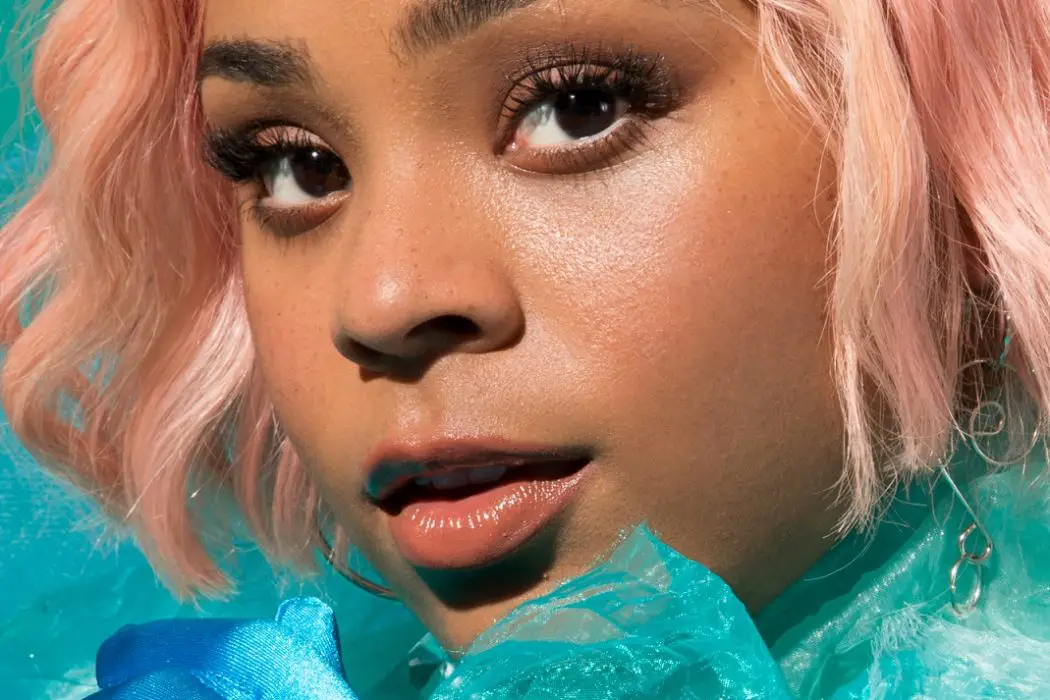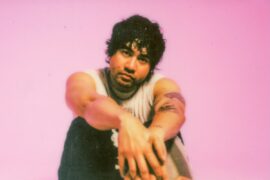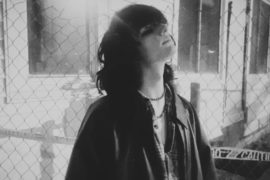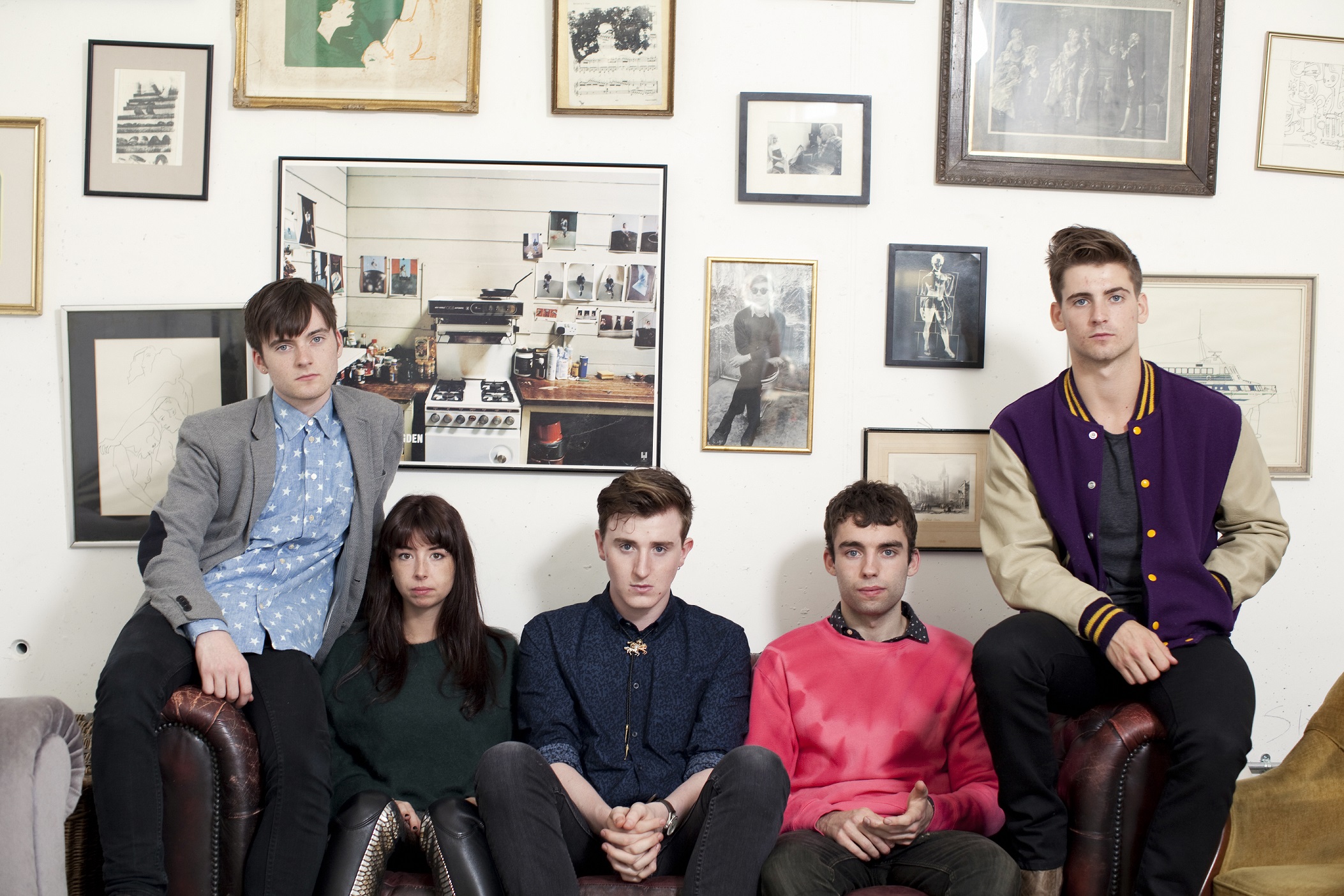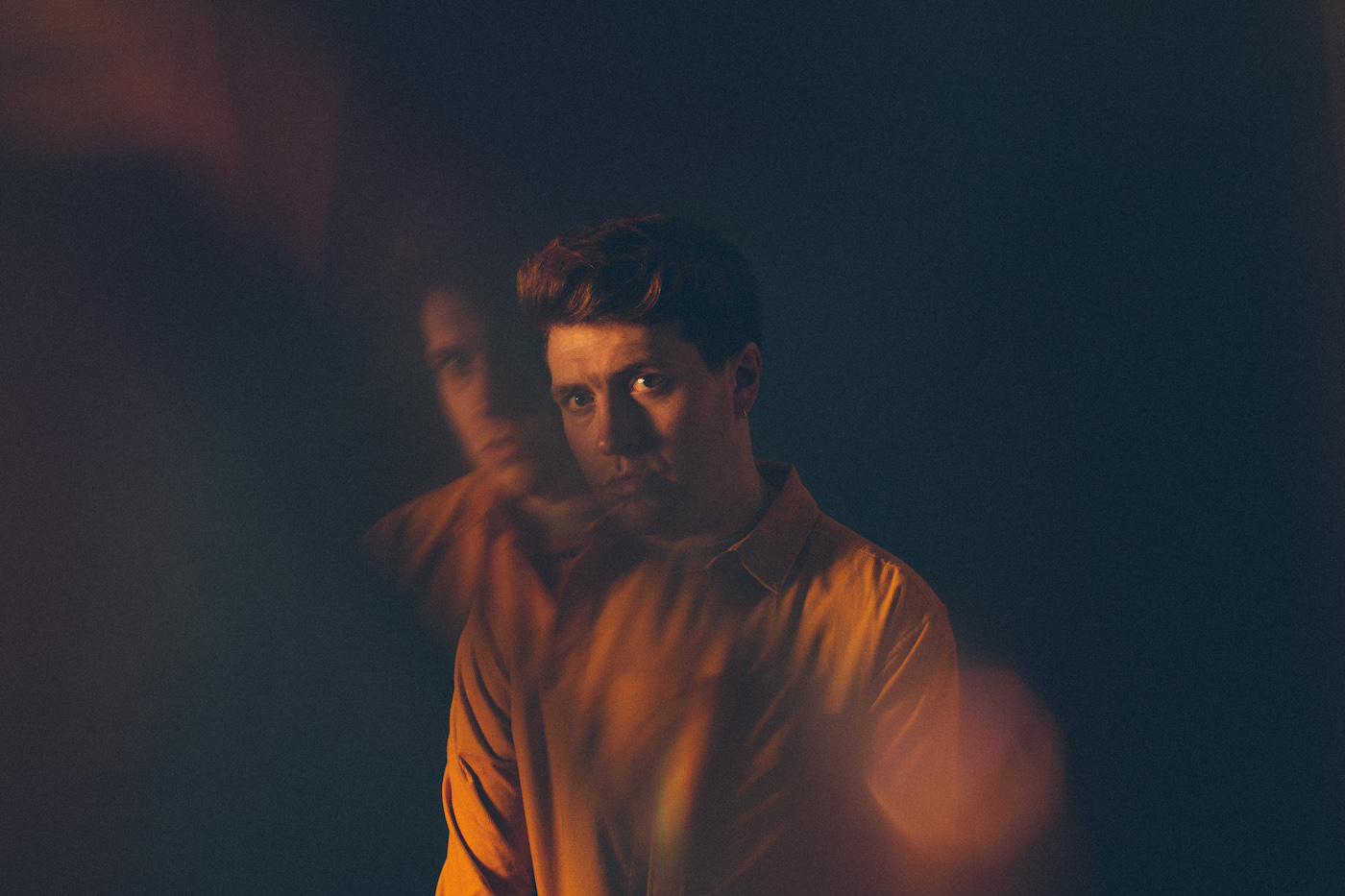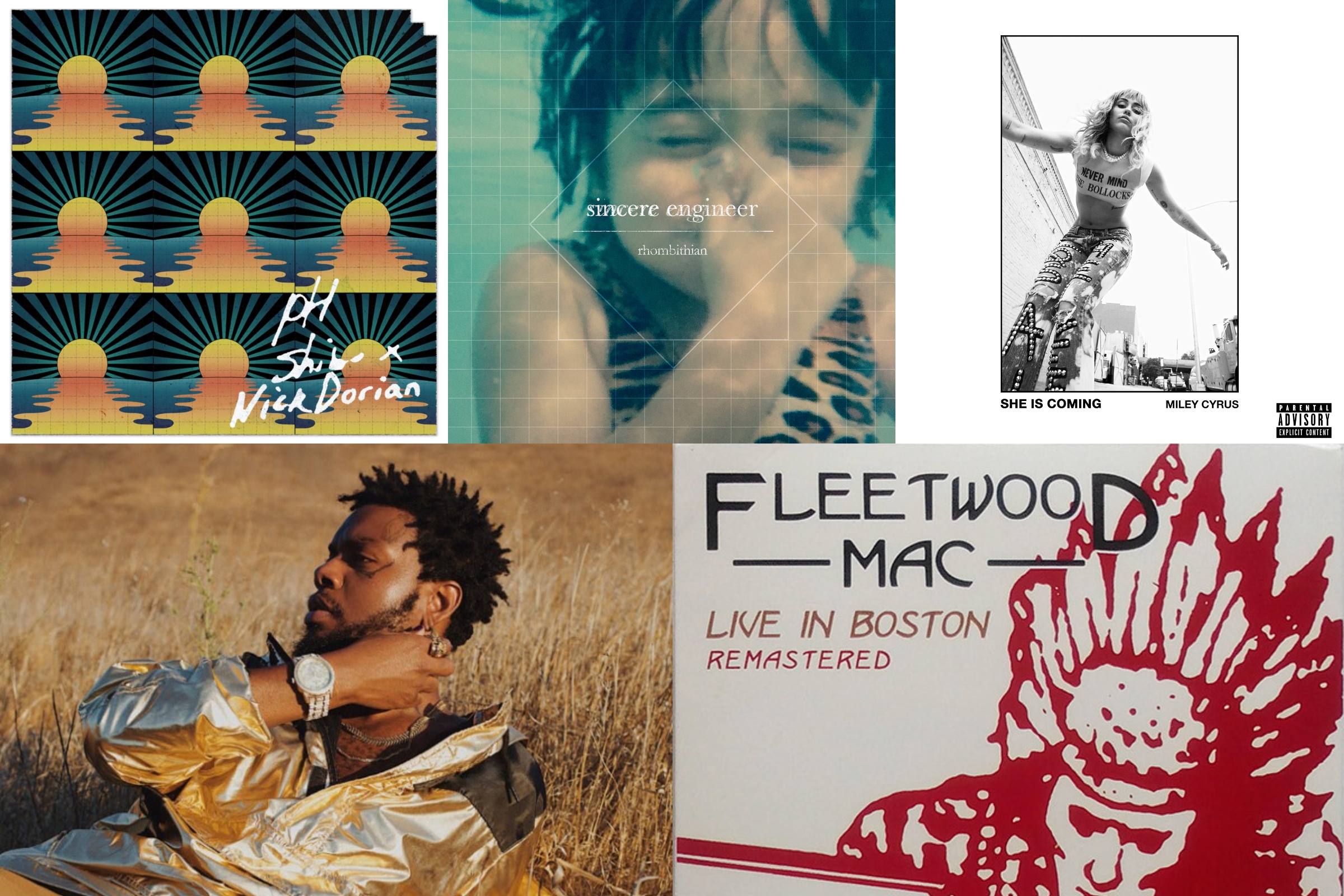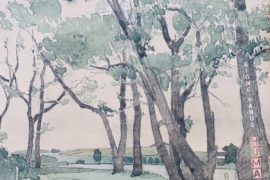Tayla Parx has spent years writing for others, and now she’s in her own spotlight. Her album ‘We Need to Talk’ highlights the singer and songwriter’s massive personality in a colorful array of songs.
It doesn’t matter whether you identify as more masculine or feminine, because for me personally I’m right down the middle. And I was really owning that this album.
If you’re a fan of musicals, you might know Tayla Parx as 13 year old Lil Inez, belting it out next to Elijah Kelley and Amanda Bynes in the 2007 adaptation of Hairspray. If you’re the type to pay attention to liner notes (digital or physical), you might know Tayla Parx as one of the wizards behind many songs on Ariana Grande’s record-breaking thank u, next. You might also know that that 26 year old has been penning hits for everyone from Mariah Carey to BTS to Janelle Monae. And if you’re a fan of music at all, you should know Tayla Parx as pop’s next fascination, a genre-blending, gender-neutralizing, blue-haired whiz-kid turned star.
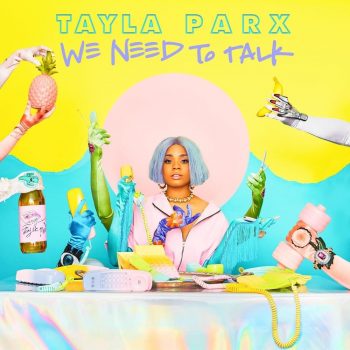
Her true debut was her Tayla Made mixtape, released independently in 2017. The tape, written almost exclusively by Parx, is an indelible collection of songs, filled with the jangle of pop, the suavity of R&B, the rougher edges of hip hop, and the warm, husky tone of Parx’s voice.
In 2019, Parx made her major label debut with We Need to Talk (Atlantic Records), a concept album for the digital age. It’s bright and effervescent, a simultaneously more playful and more mature effort than Tayla Made. Parx’s writing crosses genre and attitude lines, mixing feminine and masculine energies into a brightly colored explosion. It’s vulnerable and forthright, sweet and sly. Her personality burbles forward on songs like “Homiesexual” and “Happy Birthday – Interlude.” You ache with her on the country-leaning “Tomboys Have Feelings Too – Interlude” and the beautiful album closer, “Easy.”
By the end of her album and this year’s We Need To Talk tour, you’ll know exactly who Tayla Parx is. Get to know her today with our exclusive interview!
Because I’m diving deeper into other people more than the regular human would, I have to be deeply empathetic to be a songwriter.
Stream: ‘We Need to Talk’ – Tayla Parx
A CONVERSATION WITH TAYLA PARX
Atwood Magazine: I know that you’ve been signed as a songwriter since you were 19, and so you've been writing for and with so many people for so long. How do you differentiate between when you're writing for yourself and for other people? How does your process change?
Tayla Parx: I think the process was pretty unique to anybody honestly, like it’s really about self discovery in your lane. And I think that we’re all discovering ourselves along the way. I mean you hang out with your friends all the time, but you understand that you have different values. And sometimes you might have different opinions and it’s really just like, as you grow older, through life, like you said, I started out very young. So throughout the years I’ve been able to explore all the parts that I am and that I’m not with other people, you know, because I’m diving deeper into other people more than the regular human would, I have to be deeply empathetic to be a songwriter, you know? I think that when it came to my own album and having to basically hold up the mirror and say out of all the people’s stories that you’ve written, this is going to be the most important story to me, because it’s my story.
So what made this year the right time for your debut, do you think?
Tayla Parx: I think with the Tayla Made mixtape, which is really the debut – which has, you know, “Runaway” with Khalid and “Act Right” with Syd – I think that was the real debut, and then this was just another kind of addition to the story that I’m going to continue to tell with We Need To Talk. I learned it was such a different transition from the Tayla Made mixtape to We Need To Talk. And I’m excited to come up upon that live now for the very first time out on my own headlining tour versus you know opening up for incredible artists and I learned so much along the way, you know touring with Anderson [Paak] and Lizzo, to be able to share who I’ve become so far. Going live this year is going to be incredible.

I love that mixtape so much, I’ve listened to it so many times.
Tayla Parx: Yes, I love that! I have a lot of fans who are asking me if we’re going to bring back some of the mixtape stuff. It’s been really fun to see who’s been there since the beginning and all of the new fans, as well. So we’re just gonna keep it going, more Tayla Totts [laughs].
And I have to tell you too, I was a big musical nerd, so I was very obsessed with you in the Hairspray movie when was in middle school.
Tayla Parx: Yes, I love – there’s this viral meme going around of this girl that dressed up like me in the movie. She’s like killing it dancing. It’s been going around for the past few days and bringing up a lot of those fun memories.
I didn’t even realize that was you until I saw something on Ariana Grande’s Instagram story.
Tayla Parx: It’s hilarious seeing people make that connection, it’s honestly like a part of why I love having my hand in so many different things. You never know who the biggest fan’s going to be. It’s been very, very interesting to see how they found their discovery of my music.
Are you still doing a lot of acting?
Tayla Parx: I really slowed down on the acting actually, and really wanted to focus on just music. The only project that I ended up saying like, “I’m still interested in doing this” is the voiceover for the Sims game, because it’s such a fond memory for me and such a grounding memory for me to be able to walk back and say, I remember when I was on the Hairspray set and I used to only be able to play Sims, because I wasn’t old enough to do anything. You know, and then I remember when I was like, “Wow, I can afford to be a songwriter. I can afford to chase that dream of that.” And that was something that I experienced a completely new way of, it’s another way to get out my creativity, but I think that right now in order to get me kind of distracted from music, it’s going to only be things that feed the music, you know, and that feed my creativity.
Do you feel like your style has changed at all since the release of your mixtape?
Tayla Parx: Completely. My style has changed so much since the mixtape. I think the mixtape was more like, wild child, and I just kinda was in a girlier phase. And then for the We Need To Talk album, I really embraced the masculinity that I have naturally and I really embraced also the femininity that I had, you know, with “Slow Dancing.” Being honest about that battle was saying, hey, I had to figure out that none of that matters. It doesn’t matter whether you identify as more masculine or feminine, because for me personally I’m right down the middle. And I was really owning that this album. That’s what I was really excited about and will continue to see how owning that kind of leads into the next project.
I feel like that's becoming a lot more prominent in the pop world. It's gone from being purely such a feminine thing to now we have, you know, Billie Eilish wearing baggy clothes everywhere, etcetera.
Tayla Parx: Exactly. Now you’re seeing something that’s become the new norm. In the beginning it was a little bit confusing, because they were like, “Okay, is it this, or is it that, and what does this mean about what you’re identifying as?” and it’s like, it doesn’t really mean anything except owning whatever I am in this moment. It could be different six months from now, six years from now, or 60 years from now. But whatever it is, I’m just really happy to be able to use my music that I’m personally releasing to express that, and express those sides of myself that I can’t in other people’s music.
I feel like I hear both of those sides really clearly on We Need To Talk. Like, some of those songs are definitely a lot more like sultry. I think “Disconnected” is probably my favorite, it’s got that D’Angelo groove.
Tayla Parx: Completely, completely, and that means a lot. Cuz we are in that pocket, baby [laughs].
This album is very much about disconnection in the digital age, and I've noticed a lot of the songs are almost like little sound bites, shorter than you’d typically expect. How did this album come together thematically for you?
Tayla Parx: It’s a concept album, you know, and it’s in the way that it’s very subtle. You’re following the storyline – you’re following my storyline – and it’s very, very subtle, but it starts off on, “I want you, and I want you and I want you and you too.” I allow my life to happen so that I know what that storyline I’m trying to tell is, because it’s basically like, “This is what I’ve gone through in the past blank months or year, or whatever.” That’s what an album is for me personally. And so, you are really getting a story from the top to the end when you listen to my album. The story that I’m trying to say started off as, you know, I was kind of just as free as I was on my mixtape and then it turned into maybe I don’t want you and you and you, maybe I just want you. And then you have the realization of, “Okay, love is a two way street.” And then you go through this entire discovery of what you want out of love. So that’s what this album was, is me discovering, “Wow, there’s this other side of me that exists.” And I’ve really been able to explore it, because it’s completely different than I was on my mixtape where I kind of ran away from it. On this album, We Need To Talk, it’s really letting down that guard and allowing myself to see where it wants to take me emotionally. I think it allowed me to grow more than just as a person. I understood just more about myself by allowing that wall to kind of come down. And, you know, it’s for better or for worse, even though at the end of it you end it all on my song, “Easy,” which is me getting my heart broken which is the very first time that something like that has ever happened to me. I was super excited to have this creative way of kind of stamping it forever in time with that album.
That vulnerability comes through so much on that because yeah, on Tayla Made you are very forward.
Tayla Parx: Like, I’m just young, in my early 20s, and you know it’s that phase, and I think it’s familiar to a lot of people that have been through it, you know? Having the baby face and, you know, the “Forever Under 21” interlude. You’re really watching me grow up and you can literally turn on my musical projects and see that timeline, and see that growth and hear it.
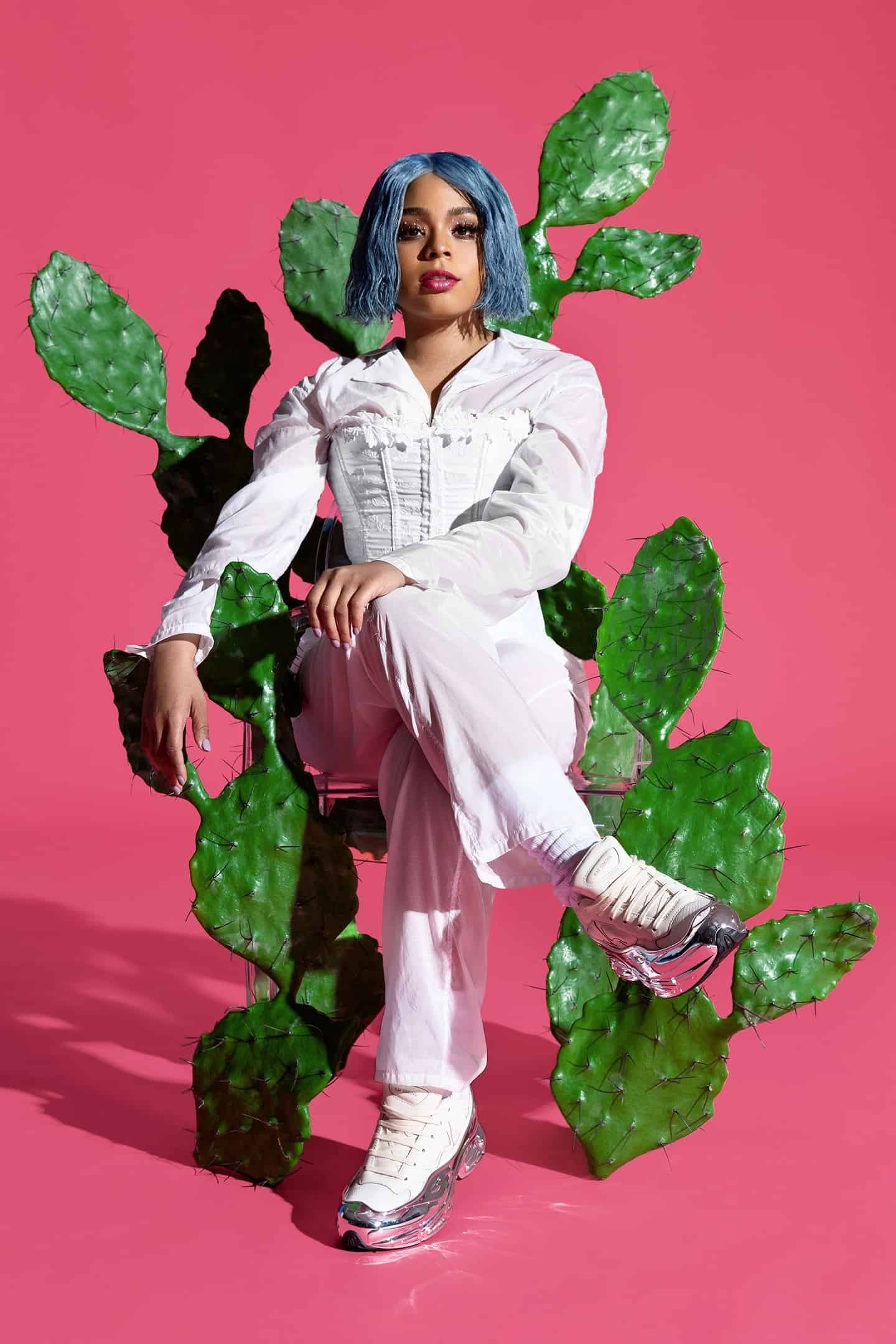
You produced a lot of We Need To Talk, as well. I know a lot of musicians that don't like to touch their own stuff, and some that really do because they want that level of full control. How does that fit into your process?
Tayla Parx: With the production on my own album, it leans a lot more quirky, and also, I like to use a lot of unique sounds and I like to catch a lot of unique grooves. It’s a combination of all these different musics that I personally listen to, you know, but I work with so many incredible producers who also collab with me that I wouldn’t feel comfortable collabing with someone else’s production in a heavy way because I know that my production is so niche. You can always tell there are certain songs that I didn’t touch on my album, as far as the production, and you can also tell the ones I produce all by myself. It’s like, “Oh it’s very quirky and whimsical, the ones that I did in my bedroom.” It’s very, very interesting to be able to explore that, and also to have the freedom to explore those different corners of my imagination when it comes to the production, because when I first started to write songs for other people, I started off as a writer and a producer and that’s where my first success lies, outside of my vocal position, you know, and then somewhere along the way I just kind of focused in on songwriting and really allowing that kind of skill to flourish.
But then, for my artistry, when it came to really discovering who I was, I noticed that my production, and the things that I had to say on that side, actually added to that vision, and I think that anytime an artist can add to the vision, then great. If not, then let’s look at people who do what they do the greatest. But this was a situation where I was really getting back to my roots and working with incredible producers who could understand how to take that vision as well, and expand upon it.
It's always so interesting hearing like just the difference that someone producing their own music. There’s a different level of intricacy that can be present.
Tayla Parx: Completely, because I don’t think any artist is really following the same rules that a producer who produces with everybody’s gonna follow, because they don’t really know you. So when you aren’t afraid to kind of break the rules that you don’t even quite know exist, you know, you approach it in a new way and I think that that’s necessary in order for anything I think that’s why having artists sometimes in the room that maybe don’t necessarily write, but they’re gonna approach something differently. I think that’s what I was allowed to do as well. Even though I’m more of a producer than an artist who doesn’t write, it’s just fun to be able to take it to another level and break all of those rules.
You just released the song “Fight” with Florida Georgia Line, which is not a group I would have ever paired you with, but it's a really cool song. I know you really enjoy blurring lines and genres. Can you talk a bit about why?
Tayla Parx: The interesting thing about the song with Florida Georgia Line is that it came so naturally, and I’d already been in Nashville a lot writing a lot of different records for some other artists that are based out there, but it was so natural and they are so groundbreaking in their own right, because of what they did with Bebe Rexha. I noticed that any time an artist is unafraid to embrace something other than what they are and allow it to just add to the vision and add to their diversity as an artist, I always respect those kind of people. Some of my earliest features are with those kind of boundary breaking artists, you know, from the Khalid to the Syd, to the DJs Afrojack and Alan Walker. I really enjoy paying homage to those other genres of music by saying, “This is what I appreciate about them and this is how I made it my own.” I think that that type of attitude is necessary to the evolution of whatever your genre is that you feel like you identify with, you know? That’s what that is, the evolution from another genre, so if you can be a student of your craft and continue to find other artists that are like that, it’d be so natural. That’s what “Fight” is, is a story that we’ve all felt, we’ve all wanted to kind of move on from something instead of having to worry about who’s right or wrong. And then at the end of the day, that song is the whole point of saying like, “You know what, it doesn’t really matter as long as we don’t go and stay mad at each other.” We’ve heard that so many times growing up and I wanted to write something really emcompasses that feeling. Now We Need To Talk has kind of opened up this whole new world for me. I definitely say it’s [“Fight”] also one of the first examples of how my how my music has evolved since We Need To Talk.
Thanks so much for talking to me, and congratulations on your Grammy nominations!
— —
:: stream/purchase We Need to Talk here ::
— — — —

Connect to Tayla Parx on
Facebook, Twitter, Instagram
Discover new music on Atwood Magazine
? © 2020
:: Stream Tayla Parx ::
We Need to Talk 2020 Tour
31-Jan Dallas, TX Cambridge Room @ HOB
1-Feb Houston, TX Bronze Peacock @ HOB
3-Feb Atlanta, GA Purgatory @ Masquerade
6-Feb New York, NY Baby’s All Right
8-Feb Toronto, ON Baby G
9-Feb Chicago, IL Beat Kitchen
12-Feb San Francisco, CA Café du Nord
13-Feb Los Angeles, CA The Mint
tix & more info @ taylaparx.com/tour

